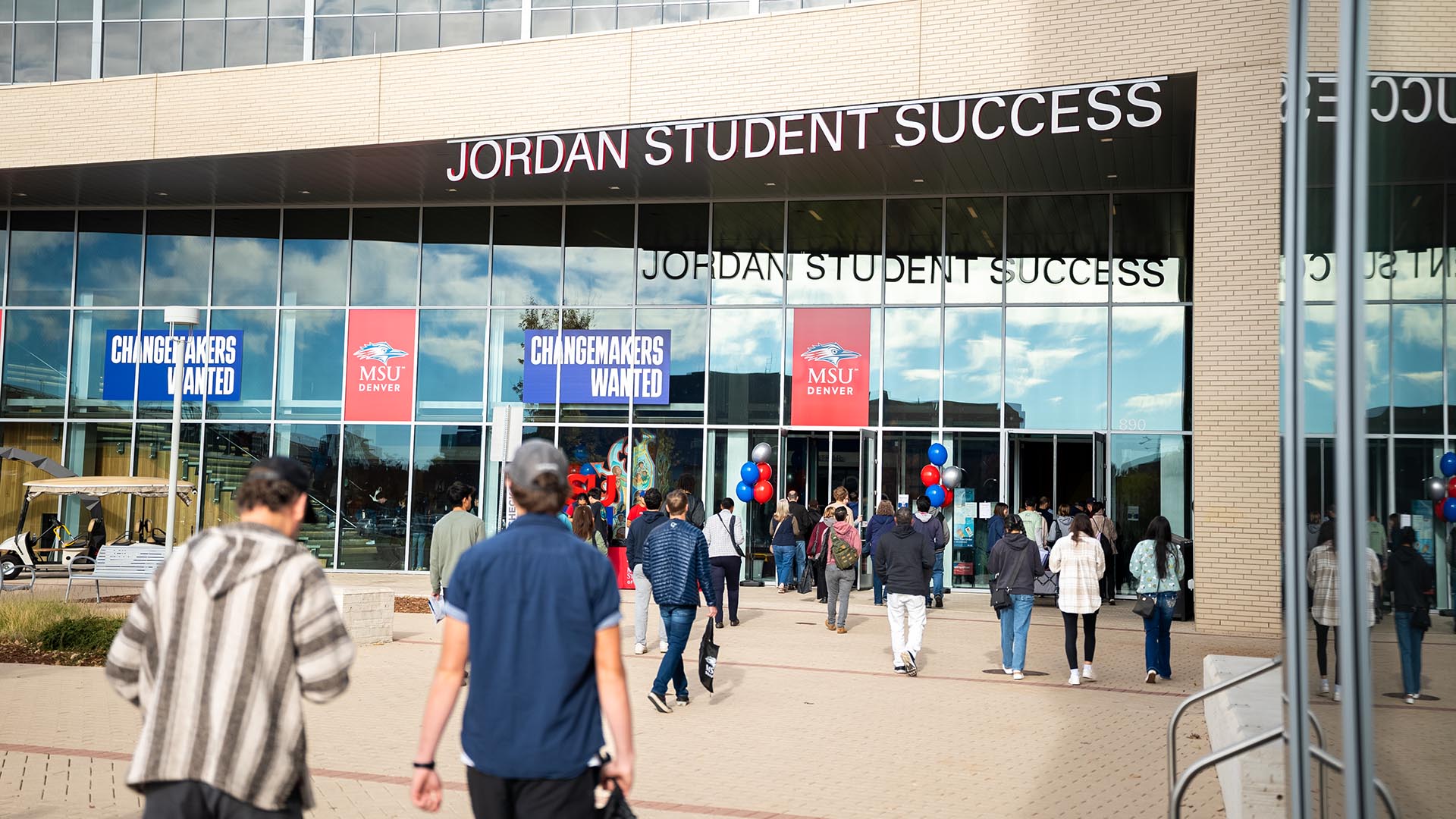Expanded Pell eligibility opens doors for students who were previously left out
New rules and a streamlined FAFSA process are making college more affordable, advancing MSU Denver’s mission of equity and access.

For decades, Pell Grants have been a cornerstone of financial aid, making higher education accessible to millions. Now, expanded Pell eligibility for the 2024-25 academic year ensures that even more students at Metropolitan State University of Denver can pursue their academic goals without financial barriers.
More than 38% of undergraduate students at MSU Denver this fall were Pell-eligible. This is the highest percentage since fall 2017, when nearly 34% were eligible. The percentage of Pell-eligible students has climbed each semester since fall 2020, but the leap this year — an 18.5% increase from fall 2023 — was significant.
Simpler FAFSA, broader eligibility
The changes, part of the FAFSA Simplification Act, streamline the application process and expand access. The new Student Aid Index replaces the Expected Family Contribution, considering not only factors such as income, family size and certain assets, but also a family’s adjusted gross income and where it falls in certain percentages of the poverty guidelines. These updates make Pell Grants accessible to students who may not have qualified in the past.
“The expanded eligibility is opening doors for students who were previously left out,” said Jennifer Helgeson, director of compliance in the Office of Financial Aid and Scholarships at MSU Denver. “Many students are now seeing Pell Grant funding in their financial-aid packages for the first time.”
RELATED: 4 changes to FAFSA and Pell for 2023-24
Which students are impacted?
Two distinct groups of students are especially impacted by the expanded eligibility:
- Students who completed the Free Application for Federal Student Aid every year but were never eligible for Pell Grants.
- Students who were eligible for Pell Grant funding but may now see an increase to their awards.
The Federal Pell Grant minimum award amount for 2024-25 is $740.
“We’ve had a number of students call the Financial Aid Office who said, ‘I see that I have Pell Grant funding; I’ve never had it before. Are you sure this is my financial-aid package?’” said Helgeson.
Typically, Pell Grants are adjusted based on enrollment, and a Pell Grant may be higher if a student is taking more credit hours in a semester. The impact of expanded Pell eligibility goes beyond tuition. Students juggling jobs and coursework can consider taking on more credits with reduced financial stress.
RELATED: What students need to know about the new FAFSA
A call to action for students
With a shorter, simpler FAFSA application, barriers to applying for aid are lower than ever. Helgeson encourages all students to complete the FAFSA, regardless of what their award amounts have been in years past.
“Throw away the idea that it’s not worth completing the FAFSA,” she said. “The expanded eligibility and streamlined process are redefining financial aid for students and families.”
The new FAFSA also allows applicants to consent to the IRS submitting their tax information directly, rather than having to find old tax returns.
Equity in education at MSU Denver
Helgeson highlighted the importance of Pell Grants as foundational funding for students.
|
The FAFSA is open now! For more information regarding financial aid and eligibility, contact the MSU Denver Office of Financial Aid and Scholarships at 303-556-8593 or email [email protected].
|
|
“With Pell being the first dollar in, and MSU Denver’s Roadrunner Promise program acting as the last dollar in, the Office of Financial Aid and Scholarships strives to create more sustainable financial aid packages that support more students,” Helgeson said.
The expanded Pell Grant program aligns with MSU Denver’s mission of equity and access, empowering Roadrunners to thrive academically and beyond. These updates are more than just policy changes; they are lifelines for students determined to change their futures.




